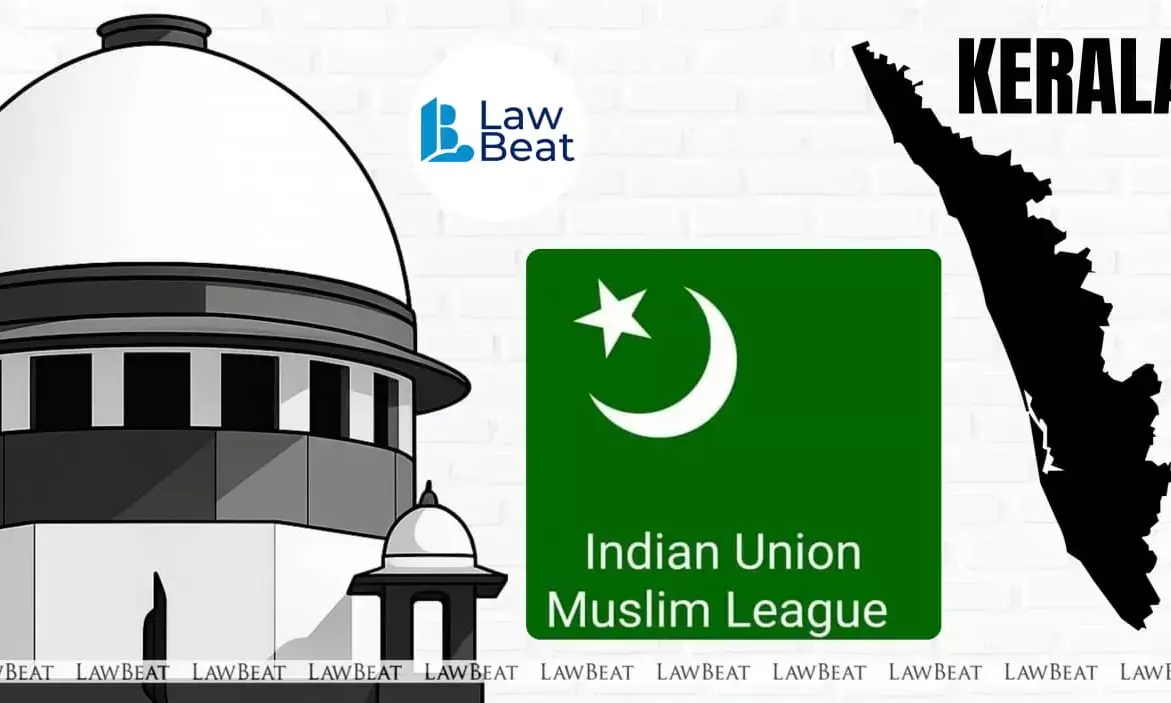Kerala SIR: IUML Moves Supreme Court Against ECI, Calls It “Backdoor Citizenship Verification”

IUML’s petition in the SC challenging the Election Commission’s SIR process in Kerala over alleged illegal voter verification and voter deletions
The Indian Union Muslim League (IUML) has moved the Supreme Court challenging the Election Commission of India’s decision to conduct a State-wide Special Intensive Revision of electoral rolls in Kerala, alleging that the exercise is arbitrary, unconstitutional and timed to cause mass exclusion of voters ahead of the local body elections.
The petition has been filed under Article 32 of the Constitution by the party’s General Secretary P.K Kunhalikutty through AoR R.S. Jena.
The challenge is directed at the ECI’s Notification dated 27 October 2025 and a subsequent Press Note of 4 November 2025, insofar as they apply the Special Intensive Revision, or SIR, to Kerala.
According to the petitioner, the exercise effectively amounts to a de-novo verification of the entire electorate, despite the State having undergone a full Special Summary Revision (SSR-2025), culminating in publication of the final rolls on 6 January 2025. A continuous revision under Rule 21A of the Registration of Electors Rules, 1960 is also underway, making the SIR “wholly unnecessary,” the plea states.
A central contention concerns the timing. The SIR is scheduled from 4 November to 4 December 2025. Kerala’s State Election Commission, however, announced its local body poll schedule on 11 November. Polling is set for 9 and 11 December, with results on 13 December. With the Model Code of Conduct in force and State machinery occupied with elections, the petitioner argues that the ECI has imposed an impossible burden on administrative staff, especially Booth Level Officers who are required to carry out house visits and paperwork simultaneously for the polls and the SIR.
The plea highlights statements from multiple BLOs who reportedly said it was “humanly impossible” to complete three rounds of house visits within the 30-day window. The petition refers to the suicide of a BLO, Aneesh George, in Kerala and another similar incident in Rajasthan, attributing them to severe workload pressures during SIR.
The IUML contends that the SIR process, as designed, imposes stringent and exclusionary documentation requirements. The ECI’s latest framework accepts Aadhaar as a thirteenth document but excludes commonly available proofs like PAN, ration cards, and EPIC. The petition says an “artificial classification” has been introduced among electors based on age and parentage, with no rational justification.
The petition highlights the vulnerability of NRI voters who form a substantial proportion of the electorate in Kerala. Even though online registration is permitted, the BLO is required to physically verify residence at the address provided. If the voter is abroad at the time of the visit, their name will be excluded. According to the plea, this effectively disenfranchises NRI electors and others who cannot be present in person during the short verification window.
The petition alleges that the SIR empowers BLOs to classify voters as “not ordinarily resident” without clear rules or guidelines, granting them excessive discretion. If an elector fails to return the enumeration form or is not found at home, the BLO may recommend deletion under categories like Absent, Shifted, Death, or Duplicate. The petitioner warns that this will lead to “mass exclusion” of legitimate voters, who would then be forced to reapply through Form 6 during the claims-and-objections phase after their names have already been removed from the rolls.
The IUML submits that the SIR framework is a “backdoor citizenship verification exercise” resembling the NRC, which the ECI has no constitutional authority to conduct. The Commission’s powers under Article 324, it argues, do not extend to determining citizenship or parentage of electors. The petition cites ongoing challenges before the Supreme Court to the ECI’s earlier SIR experiment in Bihar, where the Court had already expressed caution.
Calling the ECI’s actions arbitrary, unreasonable, and violative of Articles 14, 19(1)(a), 21, 325, and 326, the IUML seeks quashing of the ECI’s 27 October notification and 4 November press note in relation to Kerala. It also asks for the electoral rolls finalized under SSR-2025 to remain valid until further orders, warning that continued implementation of the SIR will result in wrongful deletion of lakhs of voters and render Kerala’s democratic process “constitutionally defective.”
The Bench of Justices Surya Kant and Joymalya Bagchi have scheduled the SIR hearings on November 26 and 27.
Case Title: P.K. Kunhalikutty v. Election Commission of India & Anr.
